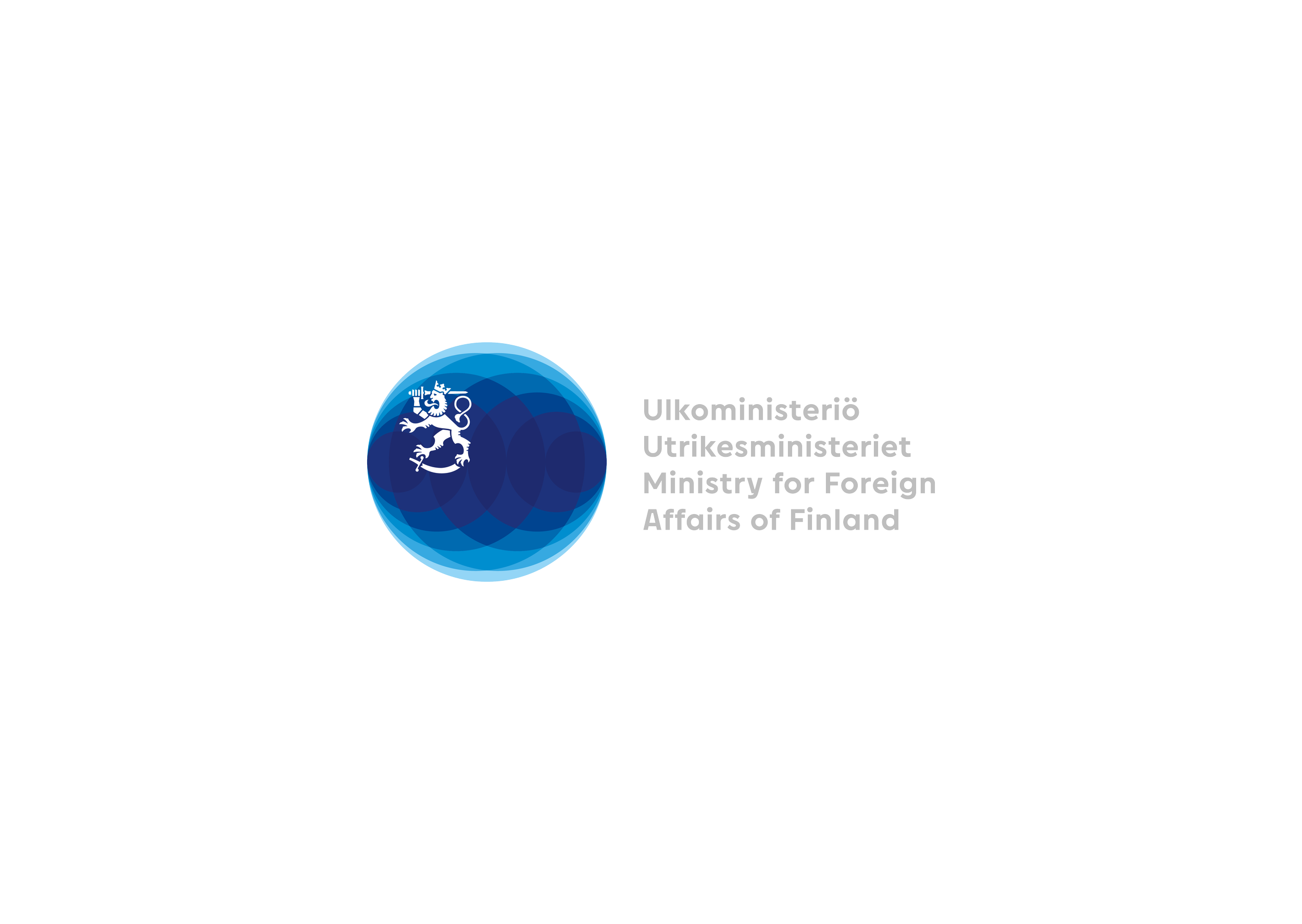FFD has been supporting women fish farmers in Nepal since 2013, and slightly earlier, together with the Finnish Fish Farmer's Association. The end of 2023 is the perfect time to reflect on what these past years have meant.
Fish farmers in Chitwan Nepal harvesting carp. Photo: Roseanna Avento.
In 2012, the Finnish Fish Farmer's Association's then Director Anu-Maria Sandel left Finland to Nepal, excited to meet Dr Sunila Rai and the women fish farmers with whom the work would begin. Upon arrival in Kathmandu, she was to fly to Bharatpur. Some waiting occurred and she could see no one there to meet her. She recalled that a police officer was supposed to meet her, so she approached the first one she saw and asked if he might be waiting for her. “No, no!”, he said. She was bewildered. He was too. He nicely called the Kathmandu Police to find out if someone might be waiting for a foreign lady and lo and behold, yes! A police officer had been waiting for her in Kathmandu but could not locate her, and then the truth dawned on everyone. Dear Anu had boarded a flight to Bhaktapur and not Bharatpur, about 160 km away.
A year later in 2013, my time as twin started and while I got to Bharatpur without any problems, I found myself adjusting to a new English. Nepali English. The project team took me to visit all the project sites and at each one, I saw lots of fishponds. I have never visited so many fishponds in the span of 10 days, and while it was interesting, the women fish farmers I met, and their language were so much more fascinating. I was familiar with Indian English, but Nepali English is a different version of English from Indian English- even though there may be similarities.
First, my being addressed as ma'am took me aback. "I'm not a ma'am. I'm not that ancient", I thought to myself. I later found out that it was a sign of respect. Silly me. So, back to the fishpond where I was standing with this group of women and a few men. It was boiling hot, and it was probably the 50th pond I was staring at that day, all of them alike. One of the men approached me and said “Look, piss in the pond”. “Piss in the pond?” I said, confused. “Yes, ma'am. Piss. Piss in the pond”. There was an odd and strange silence and then it dawned on me! “Oh... fish!! fish in the pond”. We all had a good laugh. I later learnt other nuances. “What happened to the one chap we met here, last time?” I asked Dr Sunila after one of our field trips. "Oh, he deleted!”, she answered, meaning the fellow had passed onto the other side. On another occasion with a former student of mine, we were prompted to "Shit here", but we were very careful not to defecate in front of our very kind hosts. Every moment I have spent in Nepal, I have learnt new Nepali English phrases, which make me highly appreciate the diversity of the language we call English - it changes everywhere we go and meanings are as you make them!
Yet, in Nepal there are many places where people do not speak English and I have had to rely on people I see as my heroes: the interpreters. As a twin, I cannot count the many people that have been interpreters for me, but I can say they have been among the most valuable people there ever has been. They will make your life easier, tell you what is being said and be your mouthpiece, and they provide context. And no, not everyone can write and type Nepali, not even people from Nepal. My advice to anyone planning a project: make space for interpreters and translators and pay them well. They are monumental and essential, and they deserve proper recognition, monetary and otherwise.
Nepalese fish farmers joining for a meeting. Photo: Roseanna Avento.
The women fish farmers I have met on this journey are from two different districts: Chitwan and Nawalparasi. The two are not that far from each other. Or, they are. It depends. “Depends on what?”, you may ask. Well, Bharatpur in Chitwan is about a 160 km journey from Kathmandu, about a 5 to 6-hour drive. Driving from Bharatpur to Lumbini in Nawalparasi will take about 2 to 3 hours. My first time going to Nawalparasi, I was struck by the road, or rather, its lack thereof. We drove along a riverbed. In the monsoon season, there is no way to go through. Sometimes they travel by scooter and sometimes they travel by tractor. That is some perspective for those of us in Finland who travel between cities in comfortable trains and buses, often complaining about the Wi-Fi connection.
In these two regions, the women fish farmers are as diverse as they come. Some are Hindu, some are Buddhist, some are Tharu, some are Bhramin and their ages vary from late teens to the 90s. They all are so different, but there is one thing they all have in common- fish and fish farming. They all grow fish in small or big ponds, depending on their own circumstances. They all cook fish and serve it to their families and share it with their neighbours and sell it too. For this was how the story started. With small ponds to provide for their own families in 2013, and now in 2023, they are establishing cooperative-based enterprises through which they can sell their increased production and gain a higher income.
They have come far these women from the Nepal Terai, learning the basics of fish farming, interacting with each other, sharing the responsibilities ranging from feeding of fish to harvesting of fish. Even though many of them admit they do not like harvesting fish. It is tough work, and the ponds can be deep and scary. They would rather the men do the harvesting as well as the digging and preparation of the ponds for stocking. Fish farming is undoubtably scary for the women sometimes. They may encounter wildlife like rhinos and wild boar, or even the odd crocodile. Having men around at times like this is always important. They can help provide protection.
Although the fish farming activities we have supported over the years have been labelled women fish farming, I like to think of this more pragmatically. Whole families have been involved. The gender equality aspect that we have sought to support cannot be achieved by just supporting women alone. Rather, the men in the families and in the communities must also be involved. By being inclusive rather than restrictive, we have been able to pave the way for increased women participation in fish farming.
In this 10-year journey, there are also those moments when hardship has been faced. Nepal is a natural-disaster prone country, that carries a huge burden from climate change. It is a landlocked country between two dragons, China and India, that sometimes use their power positions ruthlessly to favour their own agendas, including barring of fuel and food transportation across the borders. Developing self-sufficiency and resilience building is Nepal’s only way out of these crises. In the meantime, Nepal and her people continue to suffer turmoil in the face of natural calamities.
The Gorka earthquake in 2015 stopped our operations and damaged some fish farms and homes. The fear in the eyes of the women around me is something I can never erase from memory. The wonder of “why is the earth is shaking and causing havoc?” and questions of “will we survive?” surrounded us. Their collective fear for their families and themselves but also simultaneous concern for my wellbeing was astounding. FFD and the donors ended up supporting reconstruction measures with part of the project funding. The joy and appreciation of the families that benefitted from that support was unsurmountable. I will not forget the family that showed off their brand-new pink house to us, with tears in their eyes. They had lived for almost a year in their chicken coop.
The lessons I have learnt from these brave women fish farmers in Nepal are extremely valuable. Girls, women, wives and mothers everywhere around the world, face the same struggles in the lives, no matter their language, social, economic, cultural or religious background. Their endurance in the face of hardship is mind blowing. How much they have transformed their lives is amazing. With the earnings they have got from fish farming, they have managed to improve their livelihoods, better their family nutrition and pay for the education of their daughters (and sons). I have seen women, young and old, learn to read, learn to use a computer, create a selling campaign and even create a monitoring system. We have sat together and mused about how their groups and cooperatives run, about how to encourage children to eat fish and so forth. We worked with their community schools and put together school meals from fish and cleaned the surrounding environment together.
My being a twin to these women has never been about 'teaching' anyone but being someone to lean on, being a supporter, a sister, a daughter.. maybe a granddaughter...who walks the journey with them, and has them walk with me. So for a decade gone, I thank the women fish farmers of Nepal, and hopefully we shall continue to walk together for a decade more.
Roseanna Avento
Kobe Global
Twinning Partner Representative Finnish Fish Farmers’ Association
The project: ‘Women for Entrepreneurship and Resilience - transforming fish-farming and forest value-chains’ project in Nepal’ is funded by the Ministry for Foreign Affairs of Finland from 2021-2024















